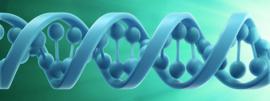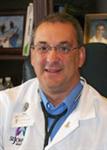Hereditary diseases - diseases caused by changes in the genetic information that emerged at various stages of phylogenesis and ontogenesis due to mutations when exposed to a variety of endogenous and exogenous factors.
Since the newborn period is manifested more than 2,000 genetic disorders, many of which are still possible to diagnose prenatally and in the early stages embryogenesis. In addition, more than 50% of chronic diseases of children and adults have a genetic determination.
TASKS OF MEDICAL GENETICS
1. The study of hereditary diseases, patterns of their inheritance, features of pathogenesis, treatment and prevention;
2. The study of genetic predisposition and resistance to hereditary diseases;
3. Study of pathological heredity;
4. Investigation of theoretical Biomedical Problems (synthesis of immune antibodies, genetic mechanisms of carcinogenesis);
5. Examining issues of genetic engineering, that develops methods of treatment hereditary diseases through gene transfer of the normal metabolism into the DNA of sick patient.
Hereditary pathology has the following forms:
- chromosomal disease;
- monogenic diseases;
- multifactorial diseases (polygenic, diseases with hereditary predisposition);
- large (congenital malformations) and small congenital anomalies (stigma dysmorphogenesis).
The reason for the formation of genetic violations are mutations - violations of the structure, the number of hereditary material and its functioning at different levels (gene, chromosome, genome). The process of forming mutations (mutagenesis) occurs under the influence of mutagens (physical, chemical, biological).
Modern classification of mutations:
- Gene mutations - a change in a single gene (at any point), leading to the appearance of new alleles.
- Point mutations - the cause of monogenic diseases, are inherited as a simple Mendelian traits.
- Chromosomal mutation - disrupt the structure of chromosomes and lead to the formation of new groups of coupling.
- Genomic mutations - lead to the appearance of new genomes or parts thereof by the addition or loss of entire chromosomes. Other their name - abnormalities of chromosome number as a result of violations of the quantity of genetic material. Is the most common of all classes of mutations.
What does the doctor of Genetics?
The doctor identifies hereditary diseases and malfunctions in chromosomes. The most optimal time for treatment to genetics is planning to become pregnant, because in this case will be conducted timely prevention of various diseases, which operate at the genetic level. Doctor takes the necessary work to ensure that there was no interruption of pregnancy and not having some pathology.
What diseases is engaged a Geneticist?
The sphere of activity of the Geneticist includes myriad of diseases, the main of which are as follows:
- Various diseases that have autosomal dominant, - recessive, X- linked types of inheritance;
- Any kind of genomics and eugenics;
- Various syndromes - adrenogenital, micro cytogenetic, Wolf-Hirschhorn, Down's syndrome, disomy, cat scream, mental retardation and so on;
- Genetic predisposition to alcoholism child, different mutations and human genetics in general.
When should refer to a geneticist?
- For parents is very important the sex of the child;
- A family has one child with genetic abnormalities;
- In the family of one of the spouses already were born people with genetic diseases;
- Blood marriage;
- When already were cases the birth of dead children or miscarriages, and if mother after 35 years.
hide
 Medical Genetics - section of human genetics that studies the role of genetic factors in the pathology and develop methods for diagnosis, treatment and prevention of hereditary diseases and diseases with a hereditary predisposition.
Medical Genetics - section of human genetics that studies the role of genetic factors in the pathology and develop methods for diagnosis, treatment and prevention of hereditary diseases and diseases with a hereditary predisposition. 






